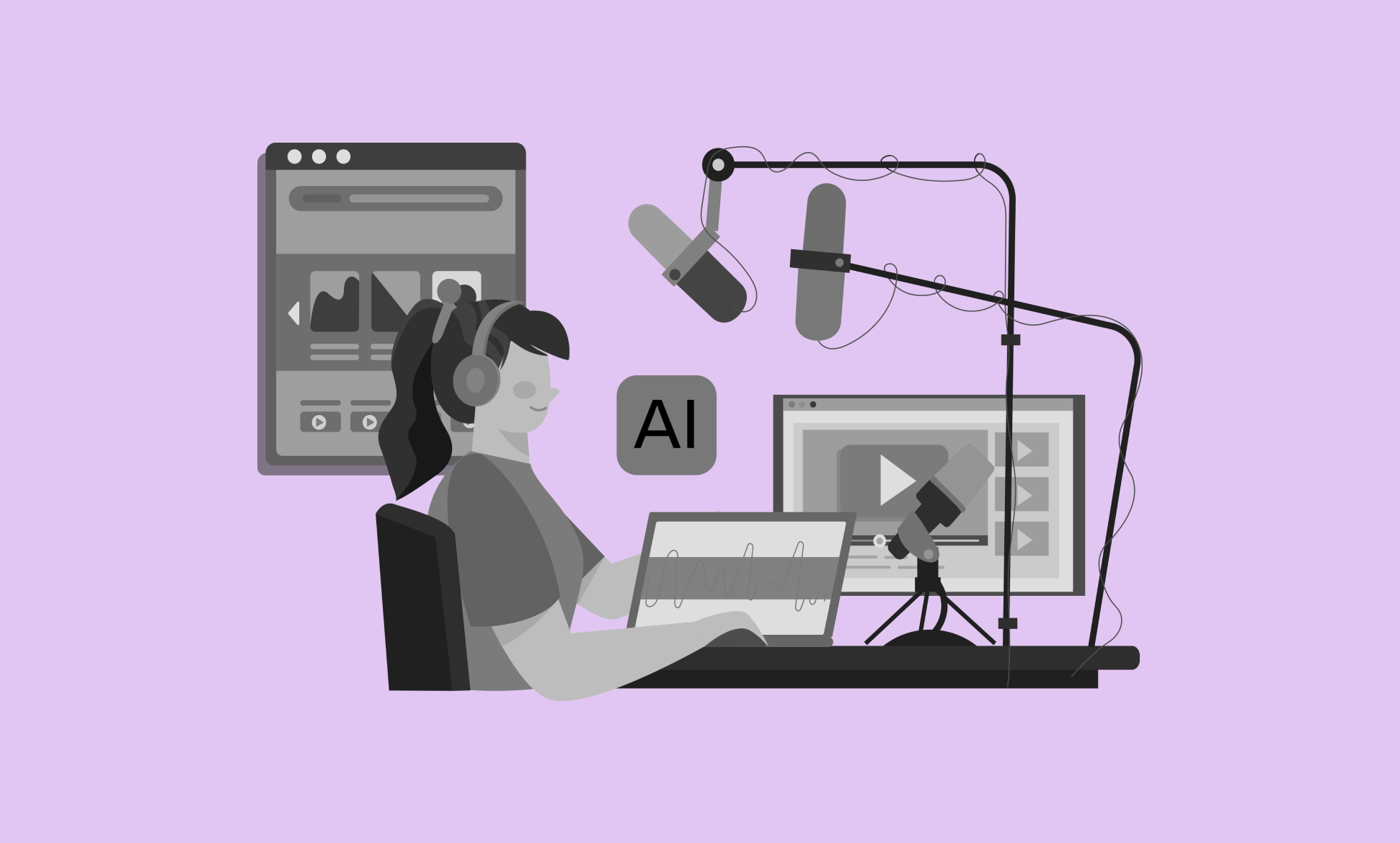We all know that podcasting has surged in popularity and emerged as a leading method to consume media, information, and news. Along with the growth in podcasting has also come the absolute boom of AI (artificial intelligence).
Thus, the era of AI and podcasting has emerged. In 2033, the Global AI in Podcasting Market size is expected to be around $26.5 million USD with a CAGR of 28.3% between 2024 and 2033. So to summarize, it’s growing rapidly.
And with this growth comes the question on many brands and creators' minds:
“How do I responsibly implement AI into my podcast?”
It’s a very important question right now. There is so much discourse around how AI should be used in creative industries, especially podcasting, where a key aspect of it is the parasocial relationship between a listener and the host.
So, in this blog, we’re aiming to answer this question and explore how this technology is changing the way podcasters create content, tune into what is resonating with their listeners, and what AI’s potential implications are for the future of podcasting.
Here’s the TL;DR:
- AI is reshaping podcasting, but how brands use it matters more than whether they use it at all.
- The strongest AI use cases live behind the scenes: saving time, improving audio quality, and supporting post‑production workflows.
- AI works especially well for show notes, titles, editing, transcripts, and content repurposing.
- When it comes to on‑mic content and voices, human hosts still matter most. Trust and connection are core to podcasting.
- Audiences are wary of AI‑generated voices, especially in branded podcasts built on credibility and relationships.
Should you use AI in your podcast?
The question of the hour: Should you be using AI in your podcast? In short, we’re supporters of using AI within the podcasting process… but let us clarify.
AI can be so helpful when it comes to areas like:
- Saving time in your workflow
- Taking repetitive tasks off your plate
- Supporting post-production processes
But, for many podcasts, branded podcasts in particular, I think you need to be wary of using AI within the actual content and editorial of your show. In short, the power of podcasting is in the connection, trust, and credibility that a host can create with their audience. And when an AI voice gets involved, it can rock the boat of that trust.
In a study done by Sounds Profitable, they found that 47% of people surveyed were less likely to continue listening to their favorite podcast if they found out it featured AI-generated voices in either the content or advertising. Of that 47%, 28% were much less likely to listen. You’ve probably seen the growth of voice cloning in AI and the growth of companies like Hume AI or OpusClip.
Yet, with the primary goal of branded podcasts being relationship building for most companies, we recommend sticking to real human voices to build real, authentic connections. So below, we cover other areas where AI can be a powerful tool for your brand’s show.
How brands can use AI in podcasting
1. Episode titles, descriptions, & show notes
Probably one of the most popular use cases for AI in podcasting is assisting your team in content creation.
When a new podcast episode is in production, there are so many assets required. Think:
- Shownotes
- Episode summaries
- Episode titles
- Episode structures
- Interview questions
AI can be a big help here. Of course, a human touch is still required to edit and review what AI provides, but it can be a great starting point and save you time.
Content creation AI tools:
ChatGPT
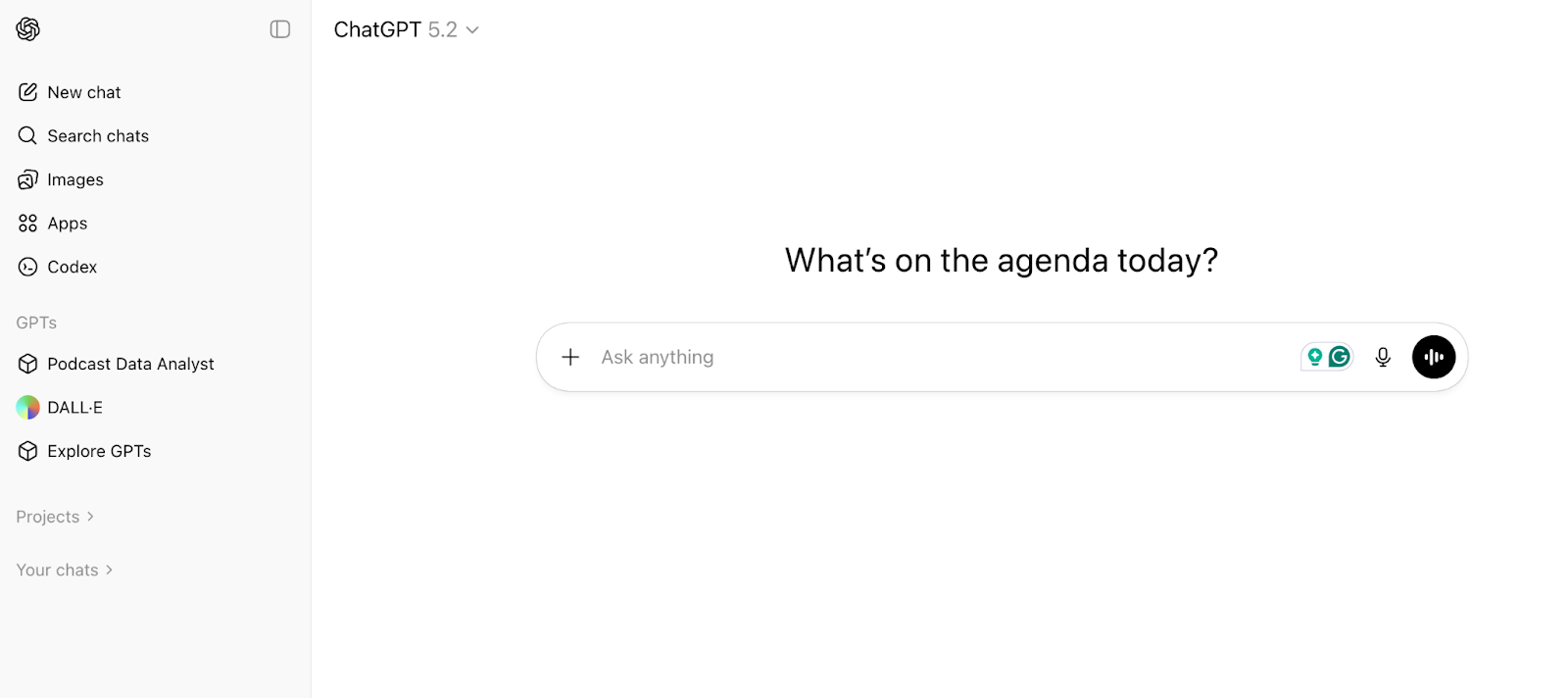
Cost: Free with the next plan (Go) starting at $8/month
ChatGPT is a go-to AI resource, it’s uses span across countless industries and tasks. But one of these tasks includes creating podcast episode resources like show notes, titles, descriptions, and more. We recommend creating a project for this task and prompting with content samples and the skillset you want your “agent” to have.
For example, you might write, “You’re a professional copywriter who’s been working in the podcast industry for the past 10 years. You’ve spearheaded the creation of podcasts like X, X, and X, at companies X, X, X. You specialize in writing catchy, original, and aligned podcast episode show notes, titles, and descriptions.” You can give your AI a name and call on it whenever you need!
Bonus tip: Check out our article on how to get your podcast recommended on ChatGPT.
Swell AI
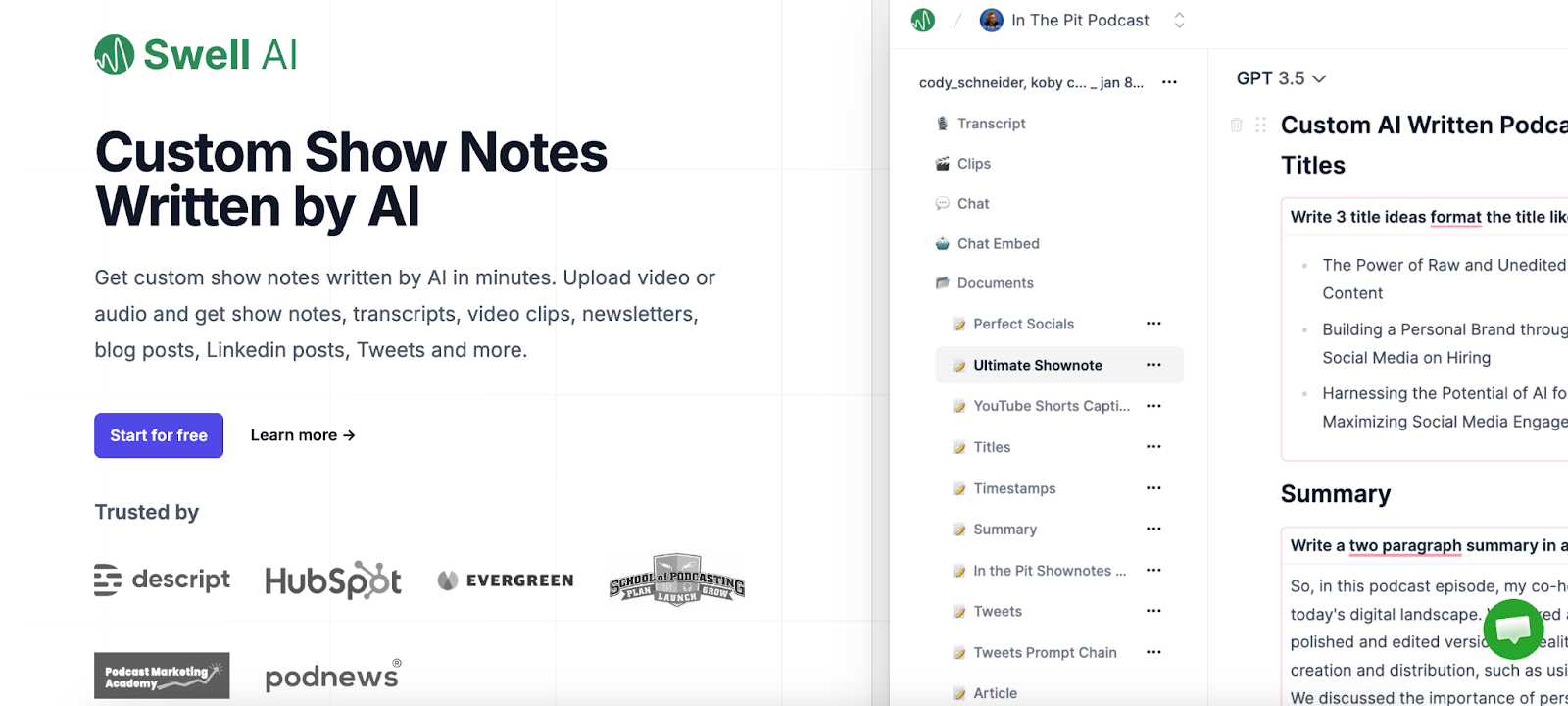
Cost: Free with the next plan (Go) starting at $17/month
Swell AI is a well-loved AI platform where you can upload video or audio content to get back show notes, titles, timestamps, descriptions, and even marketing materials like newsletters, social posts, and blog posts (more on this later).
Podsqueeze
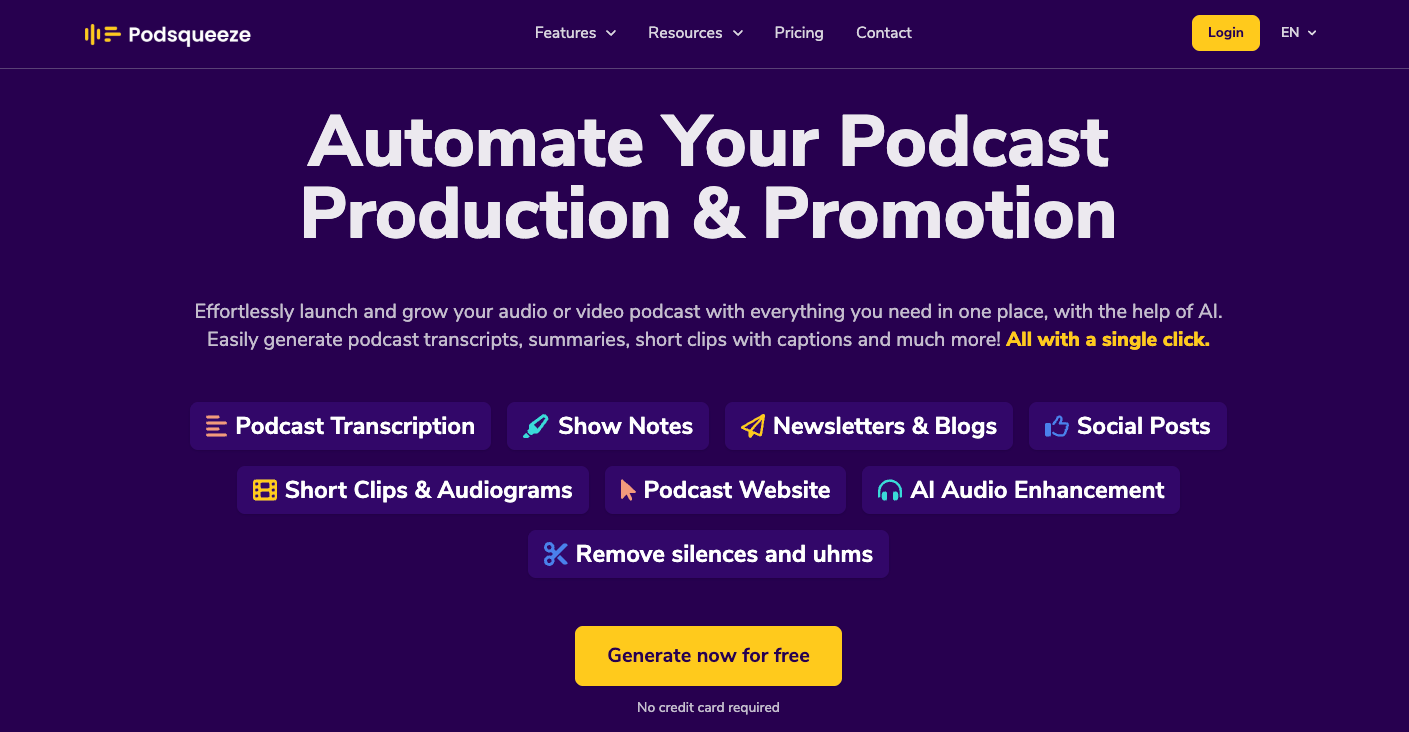
Cost: Plans start at $5.99/month
Podsqueeze offers their AI podcast summarizer, which can create descriptions, chapters, show notes, and more through their Podcast Summary Generator. It’s simple to use and similar to Swell AI, also offers content like transcriptions, newsletters, blog posts, and social posts.
2. AI podcast editing
AI can be a huge help when editing audio files, specifically when performing actions like removing background noise or adjusting the volume levels of different speakers.
This saves brands and creators countless hours and also a steeper learning curve, allowing you to produce stellar audio quality without the experience or time input.
Podcast editing AI tools:
Descript
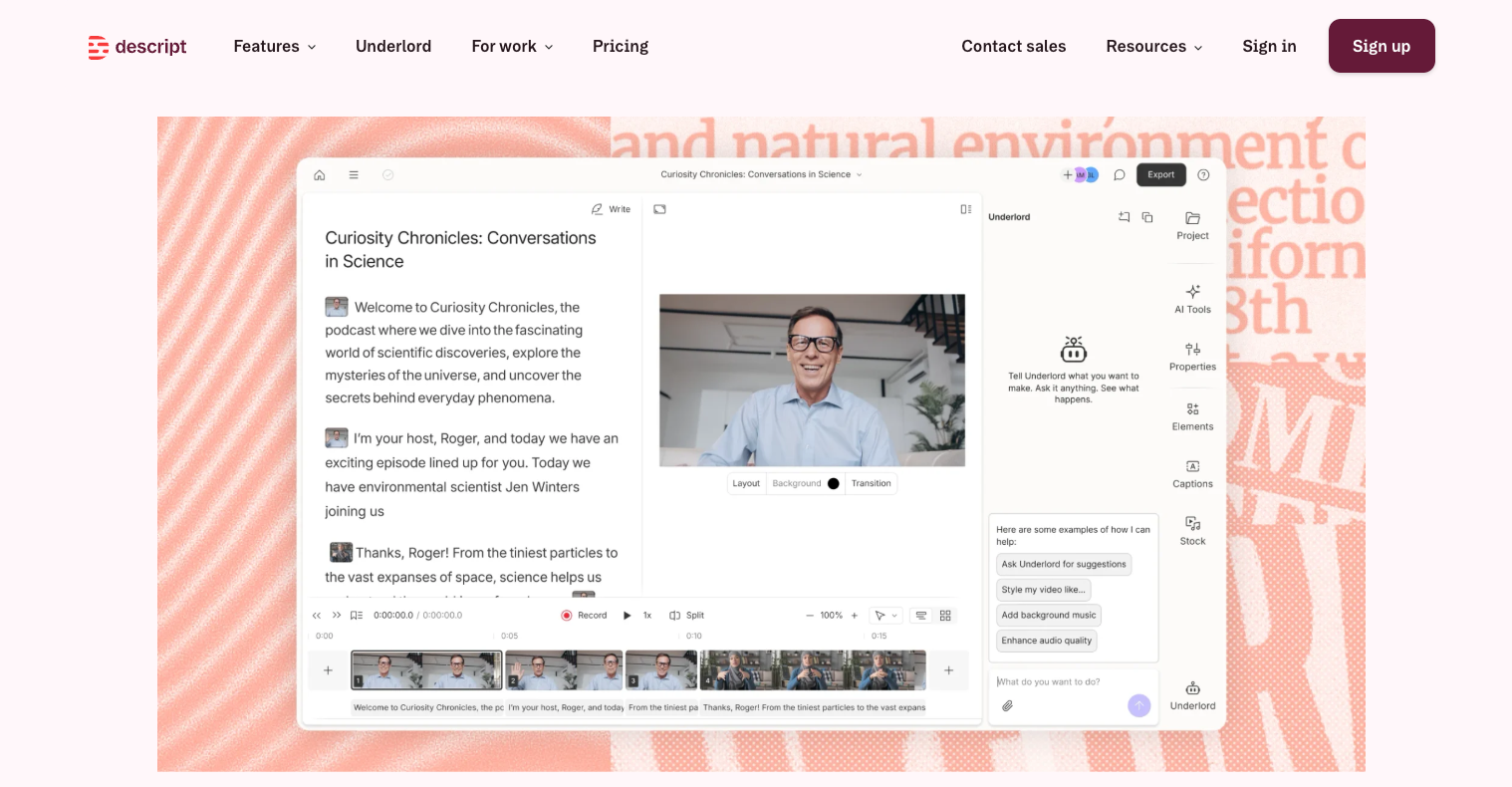
Cost: Plans start at $16/month
Popular for its AI audio and video editor capabilities, Descript allows users to easily edit media files, improve sound quality, add additional sound assets like intro and outro music, and even transcribe their files.
Riverside
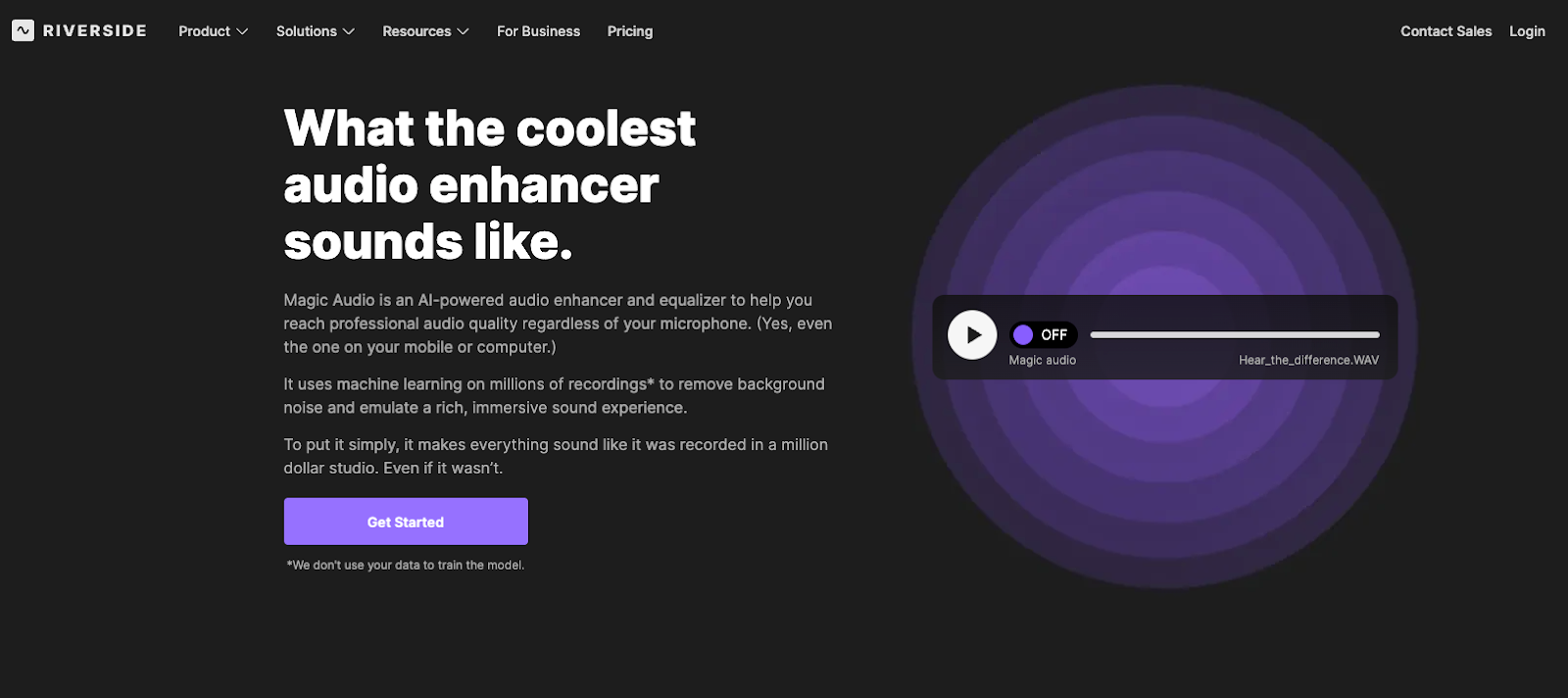
Cost: Plans start at $24/month
Riverside, specifically their Magic Audio feature, allows you to enhance and equalize audio using AI. It removes background noise to ensure that no matter the quality of your equipment, your podcast sounds like it was recorded in a studio.
Adobe Podcast
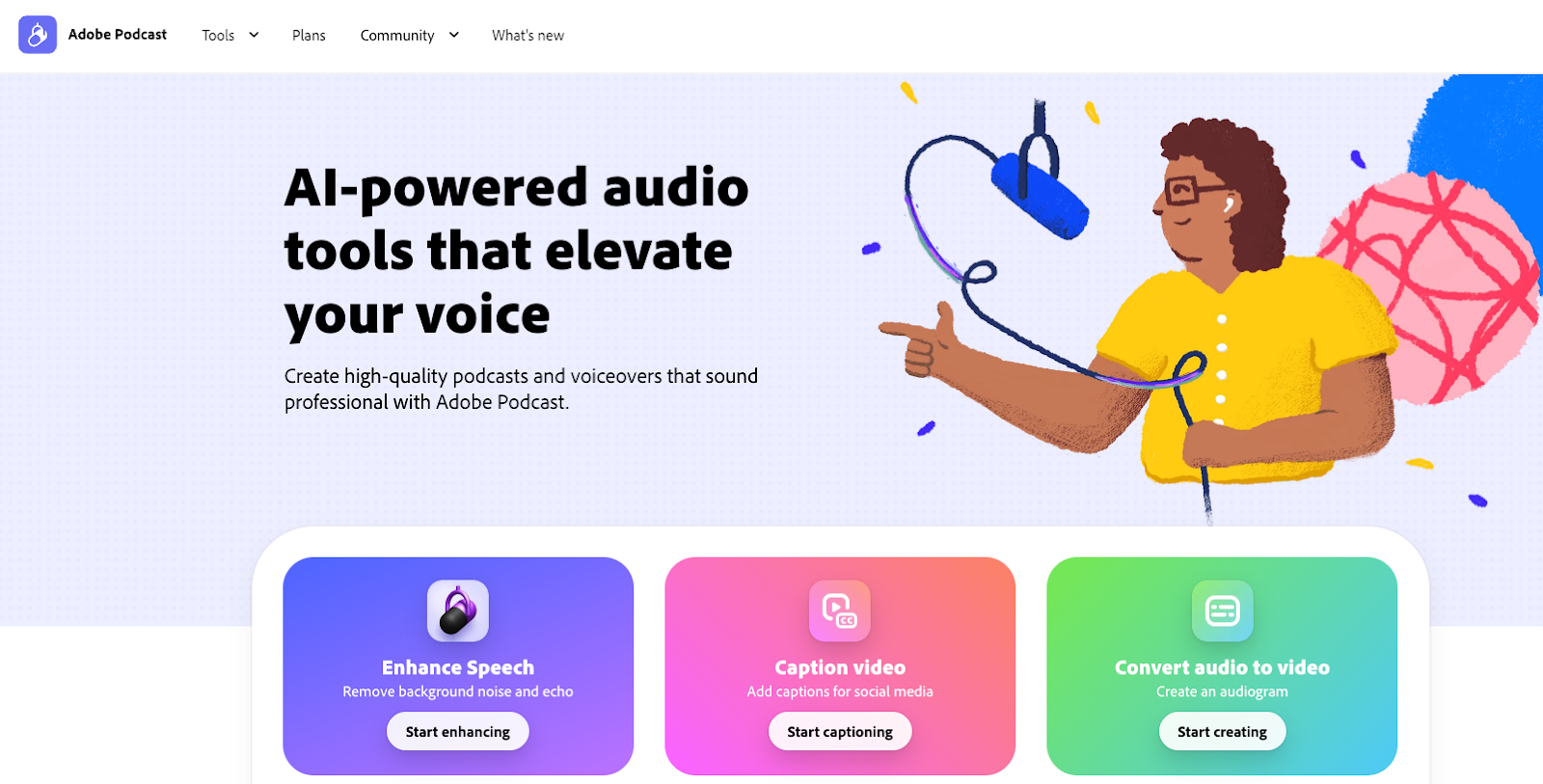
Cost: Plans start at $5.99/month
Adobe Podcast enables brands and creators to easily enhance audio by removing background noise and echo. The tool will also analyze your current recording setup using AI to ensure that you can obtain professional-sounding audio even if your equipment isn’t as professional.
3. AI-powered transcripts
Natural Language Processing (NLP) is a fascinating branch of AI that enables computers to understand, analyze, and generate human language.
Applied in podcasting specifically, NLP and speech-to-text technology are used for transcribing audio into a text format automatically, creating subtitles or captions for viewers with hearing impairments, as well as analyzing the sentiment within the content discussed.
AI transcription tools:
CoHost
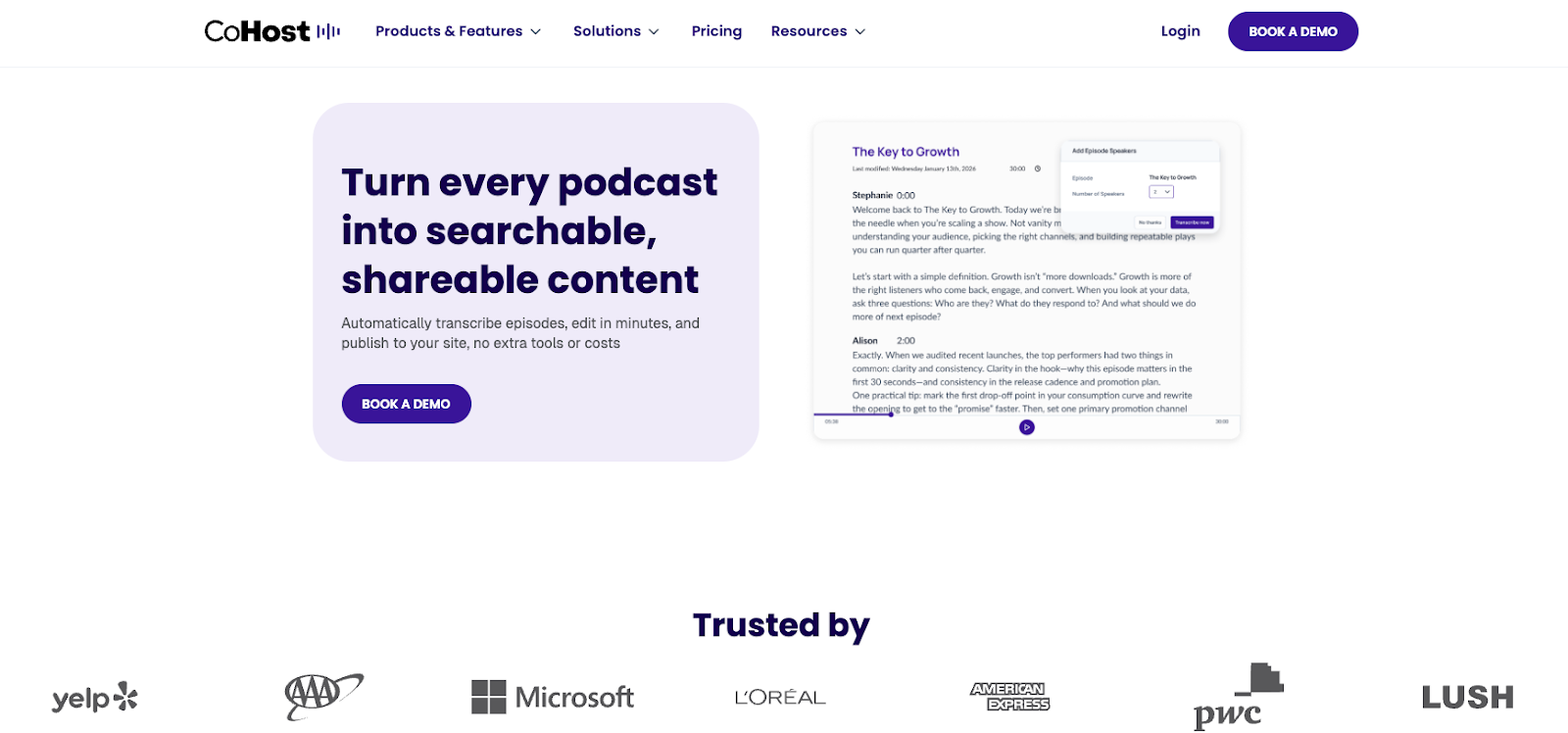
Cost: Plans start at $34/month
CoHost is a podcast hosting, analytics, and insights platform, but along with our hosting features, we offer unlimited in-app AI-powered transcriptions for effortless editing and distribution. Our built-in transcription capabilities mean that your podcast gets a natural boost when it comes to discoverability and accessibility.
Castmagic
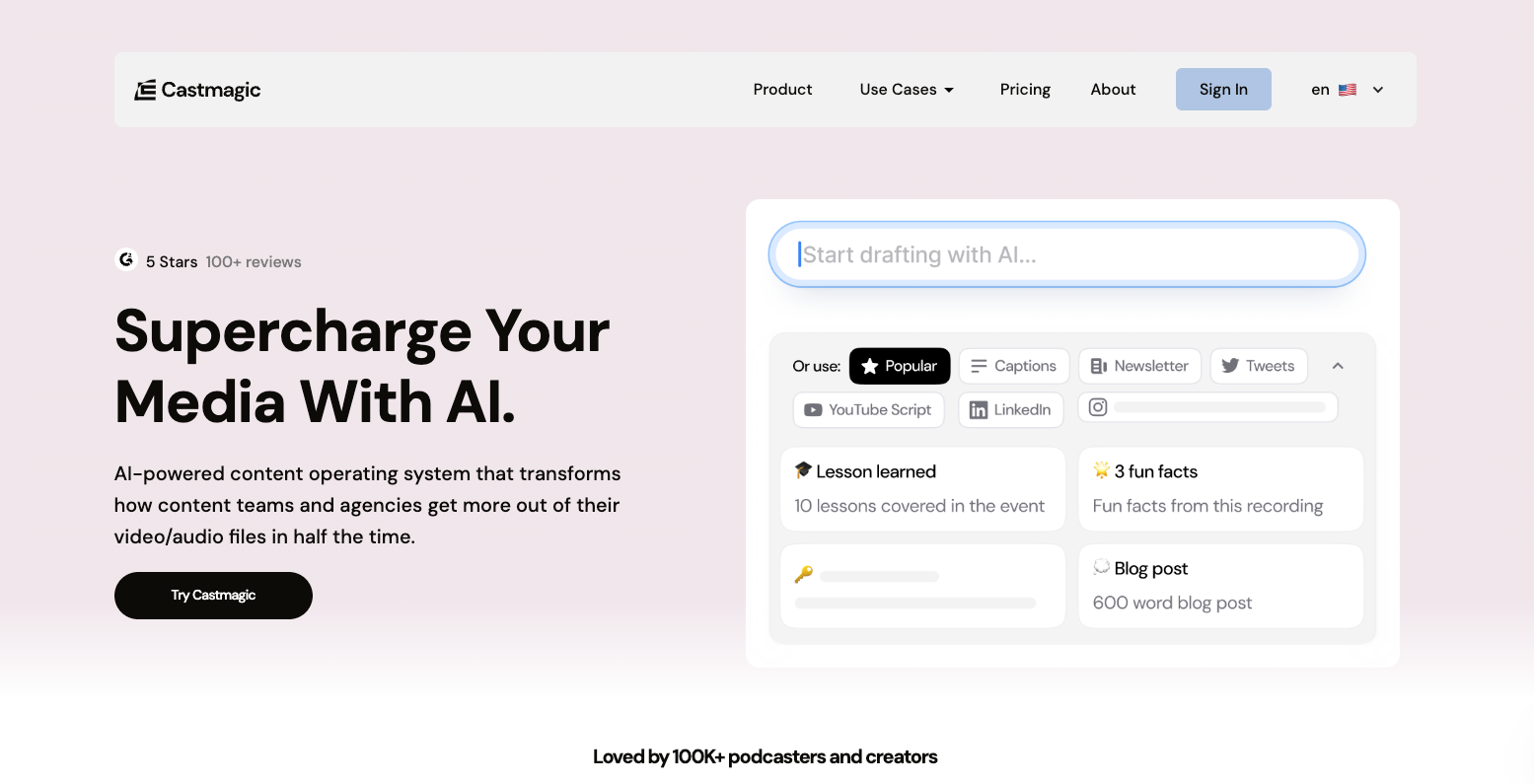
Cost: Plans start at $21/month
Castmagic is an AI-powered tool that allows you to turn audio files into many different content assets, transcriptions being just one piece of that. If you’re looking to get more content out of your transcripts, then Castmagic is a great tool to gather overviews, articles, newsletters, social posts, carousels, and much more.
Descript
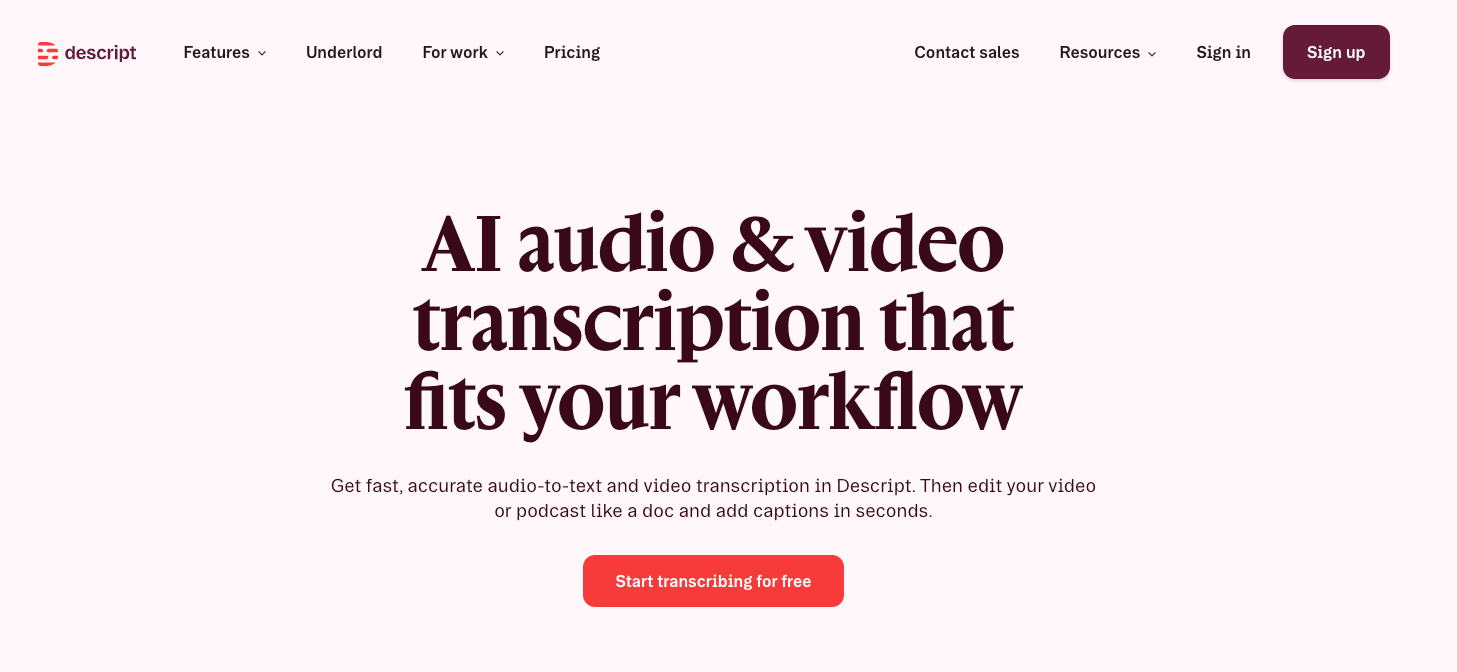
Cost: Plans start at $16/month
Making another appearance, Descript offers great transcription tools alongside their video and editing capabilities. So if you’re looking to have a large portion of your production workflow wrapped up in one tool, Descript is a great option.
4. Podcast promotion & growth
Ah, now we reach podcast growth. Podcast marketing continues to be a challenge for many brands and creators, which is fair. It takes a lot of time, consistency, testing, and… well, headache.
Although you still need to roll up your sleeves and do the work no matter what, there are some AI-powered tools out there that make it easier.
AI-powered podcast promotion & growth tools:
Headliner
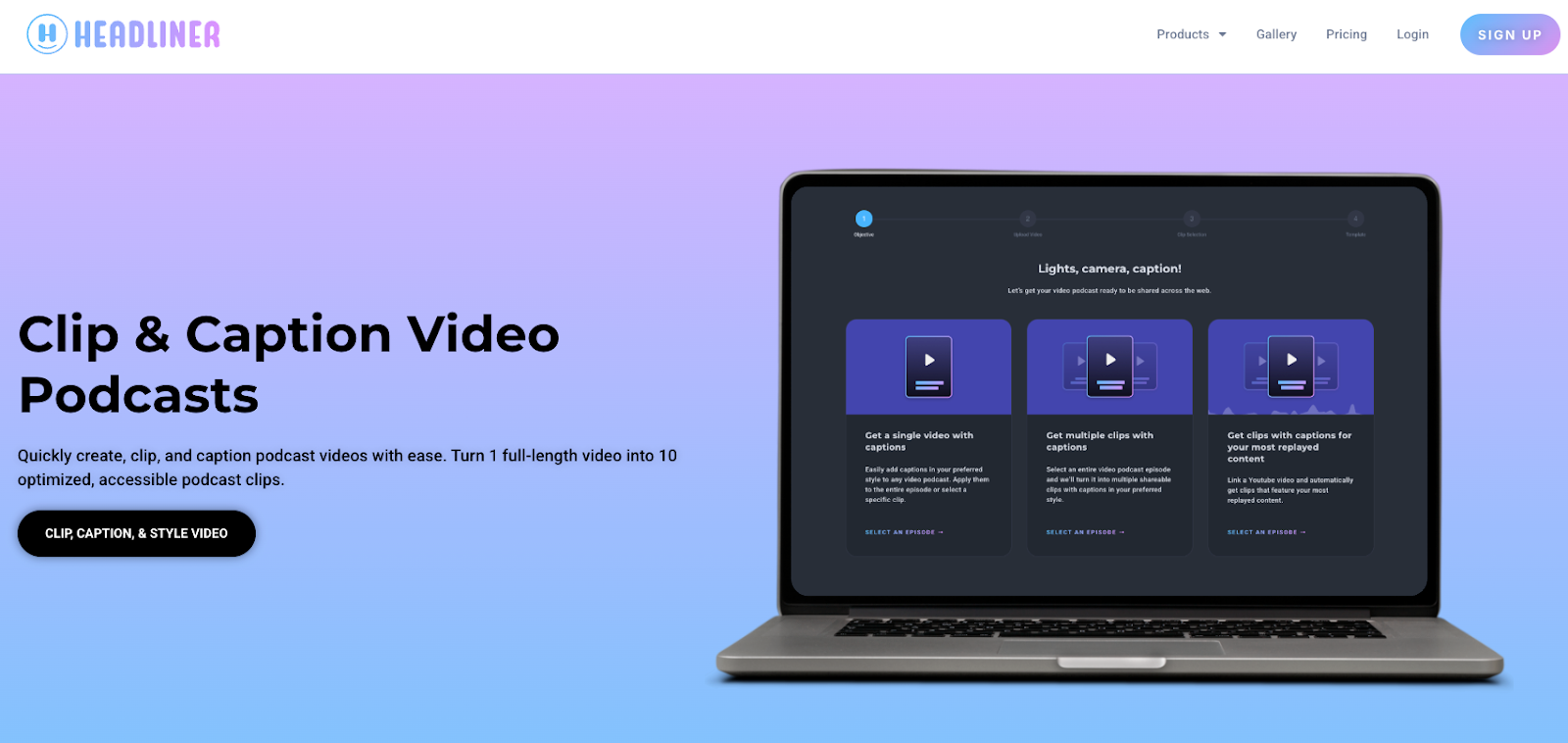
Cost: Plans start at $7.99/month
Headliner, the audiogram platform, offers an AI-powered clip and caption tool for video podcasts. The tool goes into your video content, identifies what the audience will find interesting, and turns the full-length video into captioned clips designed to boost growth and awareness.
Castmagic
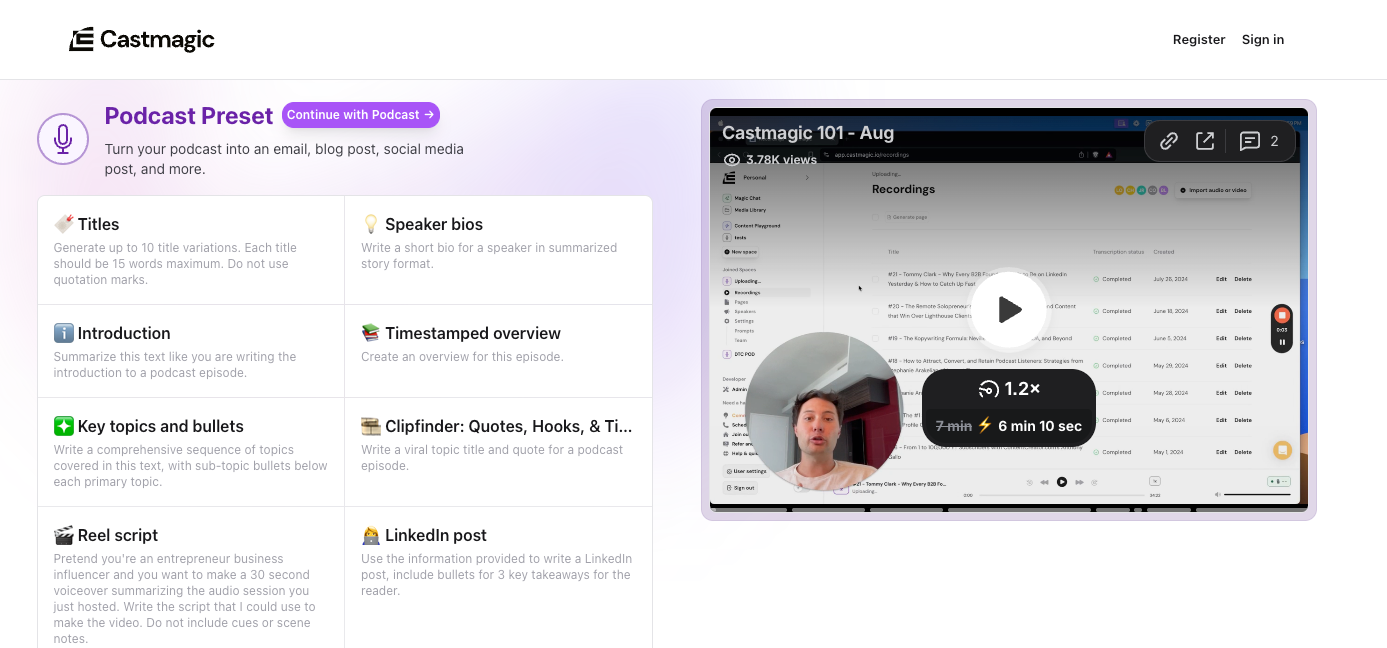
Cost: Plans start at $21/month
Castmagic is also making another appearance; the tool offers AI-powered features like Clipfinder, LinkedIn posts, X threads, Threads by Instagram, Keyword identification, and Newsletter content, to name a few.
Buffer
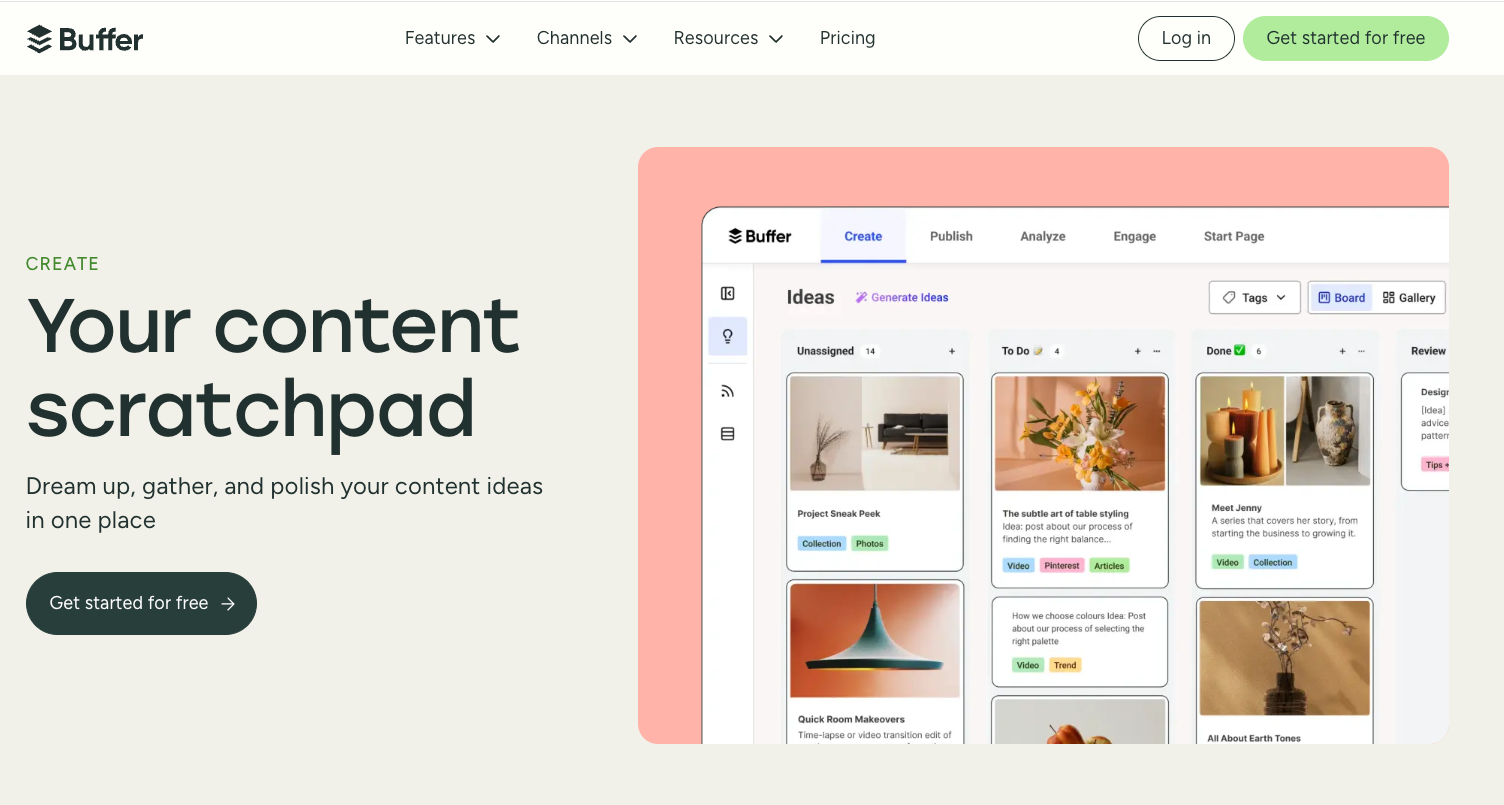
Cost: Free with the next plan starting at $5/month
Although not podcast-specific, Buffer is a social media creation and scheduler tool. Through its “Create” features, users can gather, polish, and publish content all in one place (and as we know, social media can be a powerful tool for podcasters).
Use AI to support the work, not replace the voice
For brand marketers, the opportunity lies in using AI where it removes friction: speeding up production, improving audio quality, increasing accessibility, and helping content travel further once it’s published. These are meaningful gains, especially for lean teams juggling multiple channels.
At the same time, the heart of podcasting shouldn’t change. Audiences still come for real conversations, credible voices, and a sense of connection. That trust is built by humans, not algorithms.
As AI continues to evolve, the brands that win in podcasting will be the ones that use it intentionally, like automating the repetitive, enhancing the technical, and protecting the authenticity that makes audio such a powerful medium in the first place.
For more insights into the podcast industry, how brands are leveraging audio, and the latest reports and data, sign up for our bi-weekly newsletter, Tuned In!


